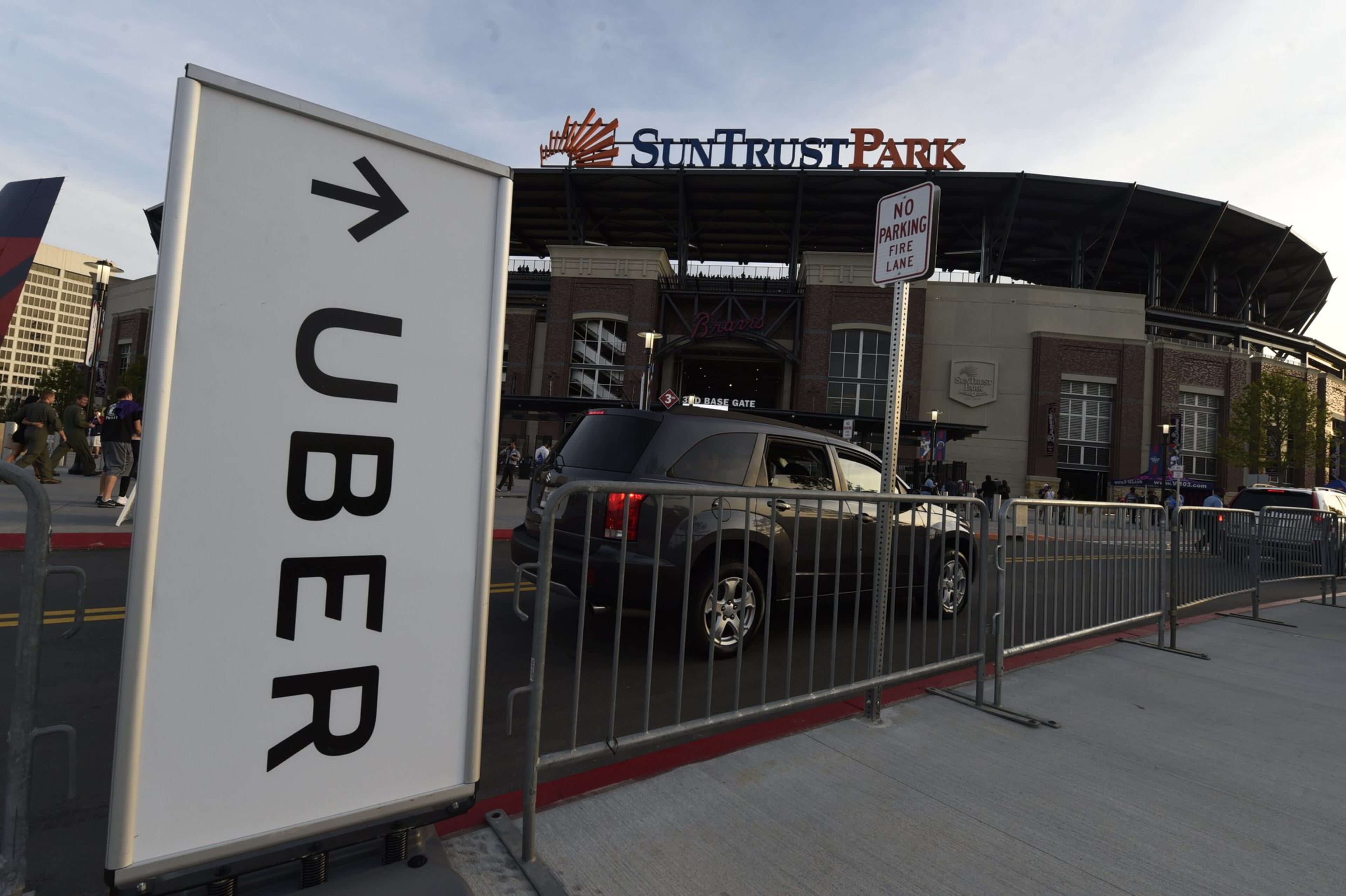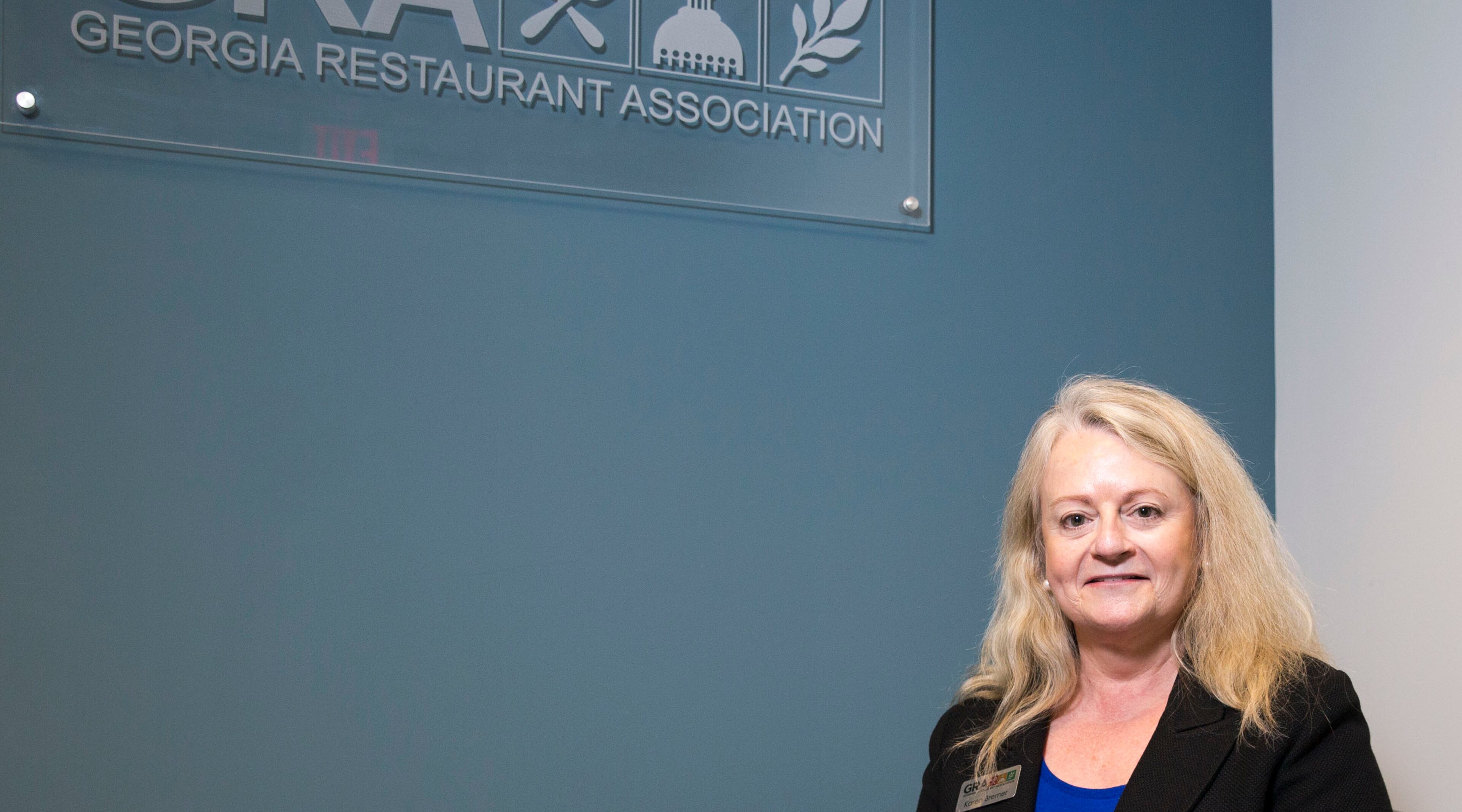Uber Eats and similar services have Atlanta restaurants nibbling but wary

As technology serves up convenience to a restaurant-happy region, many metro Atlanta restaurant owners are looking at the trend with doubt.
Some restaurants are passing up the chance to partner with services like Uber Eats, GrubHub or Doordash that offer to pick up a customer's order and bring it to their home. Others participate grudgingly. And some find themselves used unknowingly by services that list restaurants without permission.
In those cases, the restaurants receive take-out orders and don’t even know a third party is involved in their business.
Much of that dynamic is invisible to consumers, but the attraction for them is clear: tap their phones for the app, pick the items you want and get what you want without leaving home. The delivery services, of course, hope to make a business out of it.
Delivery used to be mostly limited to pizza places and the odd deli, but the idea of home delivery from all sorts of restaurants has surged in the past few years. The ubiquitous – and ever-more powerful – smart phone has enabled a multi-billion dollar ride-sharing business, which is now being leveraged into food delivery.
For restaurants, the idea is a mixed blessing.
"I look at it as a way to get my name out in front of people," said long-time, high-profile chef Shaun Doty, co-owner of The Federal in Midtown, Bantam + Biddy and ATL Taco at Lenox Mall.
For some restaurants, any takeout order comes from a customer they wouldn’t have had otherwise, so it is simply added revenue. But in other cases, the consumers that get delivery are passing up a visit to the restaurant, where they might order added food or drinks.
Which is it? “There’s just no way to meter that,” Doty said.

Typically, the delivery services charge the customer a delivery fee. But some – like Uber Eats – charge a modest fee, and then also take a sizeable bite of the restaurant’s tab for the food, often about 30 percent or more.
“It is not a great way of making money,” Doty said. “It is a form of marketing and advertising.”
The delivery companies boast of boosting the restaurants’ business.
Uber has more than 1,000 metro Atlanta restaurants as partners, said spokeswoman Evangeline George. "Uber Eats effectively expands the capacity and reach of our restaurant partners to be able to serve a whole new network of potential customers."
Grubhub said its partners see monthly takeout revenue jump an average of 30 percent within a year, said spokeswoman Kaitlyn Carl. “Small restaurants typically see their revenue increase 50 percent after signing on with Grubhub.”
But higher revenues are not enough, argued Karen Bremer, chief executive of the Georgia Restaurant Association, which represents more than one-third of the 18,000 restaurants in the state.
To most restaurants, where profit margins are notoriously thin, giving away 30 percent of the tab is just a bad deal, she said. “The average profit margin of a restaurant is 4 to 6 percent. So, they are losing money.”
But they know many of their competitors are doing it and they do it, too – like Doty – for “brand exposure,” Bremer said.

But the reluctance is more than economic. There are so many unknowns once the food has come out of the kitchen, and been packed up and driven away, she said.
At the worst, there is a grim possibility is that something very bad can happen. For instance, an Uber Eats driver was recently charged with murder in the killing of a customer in Atlanta.
But generally, the dangers for restaurants are about finances and reputation.
The restaurant may not be legally responsible for any health issues that occur after the food goes out the door, but they don’t want to be linked with a problem caused by someone else. And there is no way of knowing who — or how careful — the driver is, Bremer said. “We think the Georgia Department of Public Health has to do something. There is just no regulation and no training for the handling of food.”
Traditional delivery – say, for pizza – typically involved drivers employed by the restaurant who were directly accountable. Now, that's not so clear.
Are the drivers reliable? Once the food leaves, the restaurant forsakes control. But anything that goes badly could taint a restaurant’s reputation – even miscues as basic as the driver getting stuck in traffic or filching part of the order, Bremer said. “Then the customer doesn’t get his French fries or the food arrives cold and they call the restaurant to complain, but the restaurant doesn’t know what they are talking about.”
Grubhub uses independent contractors for the orders it delivers, and "we run extensive background checks and motor vehicle screenings," said a spokeswoman for the company. Similarly, Uber also runs checks on applicants. Nearly anyone who has passed muster to drive for Uber can also drive for Uber Eats.
Food delivery seems like a natural extension of the rising “gig” economy. And it now reaches from fast food joints to … well, not necessarily all the way to the top of the food chain.
The Buckhead Life Group tried it out, doing a trial run with Uber Eats, said Caroline Clements, director of marketing for the 13-restaurant company, which includes Bistro Niko, Buckhead Diner, Chops, 103 West, Pricci, Kymma and the Atlanta Fish Market
She had nothing but praise for Uber Eats. Very professional, dependable and careful. And yet…
“It does seem like they have a high regard for quality, but maybe for us it wasn’t really the right fit,” she said.
Because, she said, what Buckhead Life is selling is not just fine food, it's a "full experience" that includes ambience, feel, atmosphere and even the appearance – things that cannot be boxed up.
“Our chefs put a lot of work into making sure that every dish is just right. Unfortunately, (with Uber Eats) we don’t have a lot of control of the way our dishes look when they arrive at the guest. Once they leave the four walls of the restaurant, we just cannot be sure.”
The delivery companies make things convenient for the consumer, but there’s simply more than that involved, Clements said. “For example, the St. Jacques scallops is actual art on the plate. But if you it ride around in a ‘go’ box for 30 minutes, it will be a different experience.”
MYAJC.COM: REAL JOURNALISM. REAL LOCAL IMPACT.
AJC Business reporter Michael E. Kanell keeps you updated on the latest news about jobs, housing and consumer issues in metro Atlanta and beyond. You'll find more on myAJC.com, including these stories:
Never miss a minute of what's happening in local business news. Subscribe to myAJC.com.



